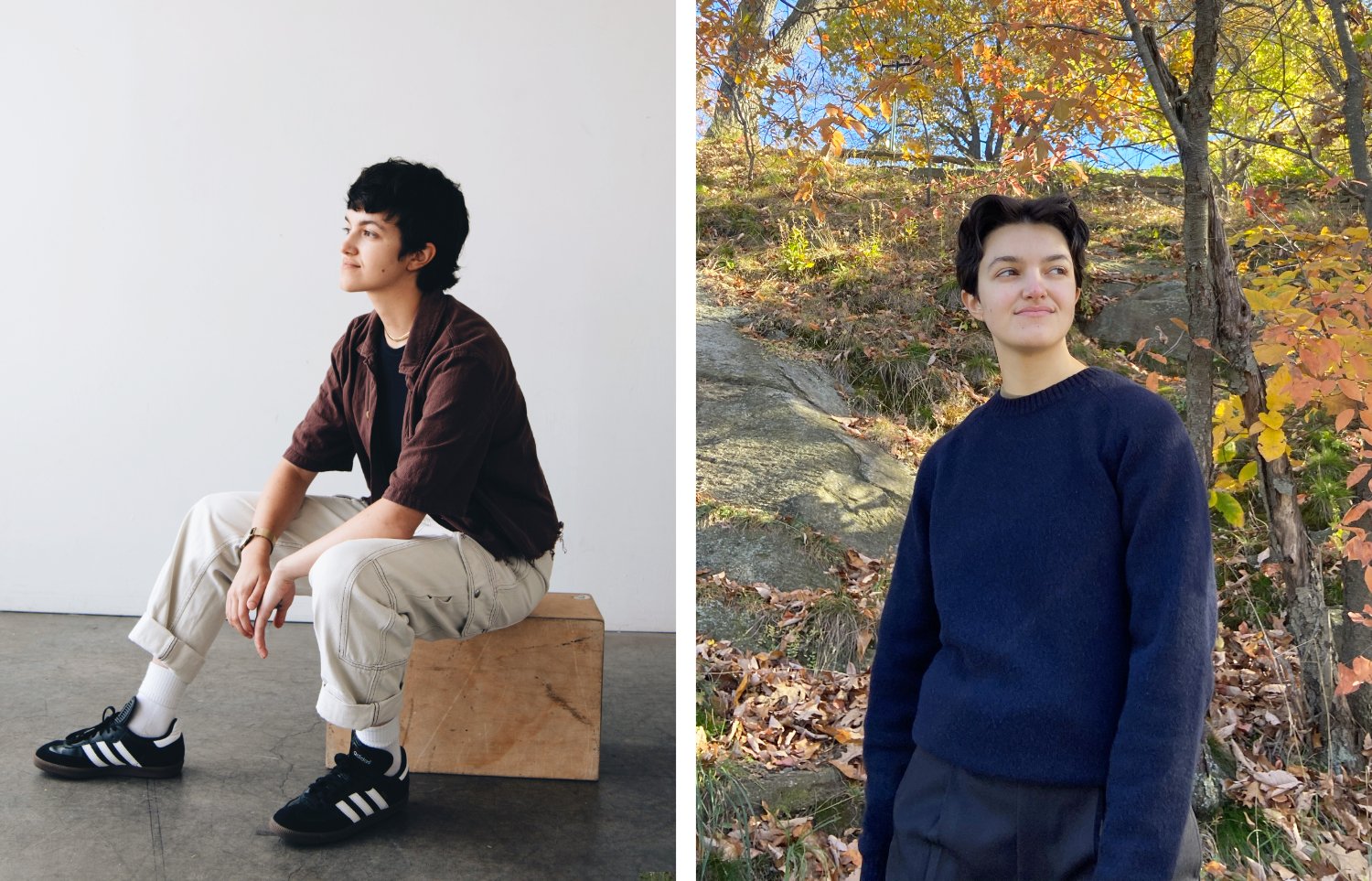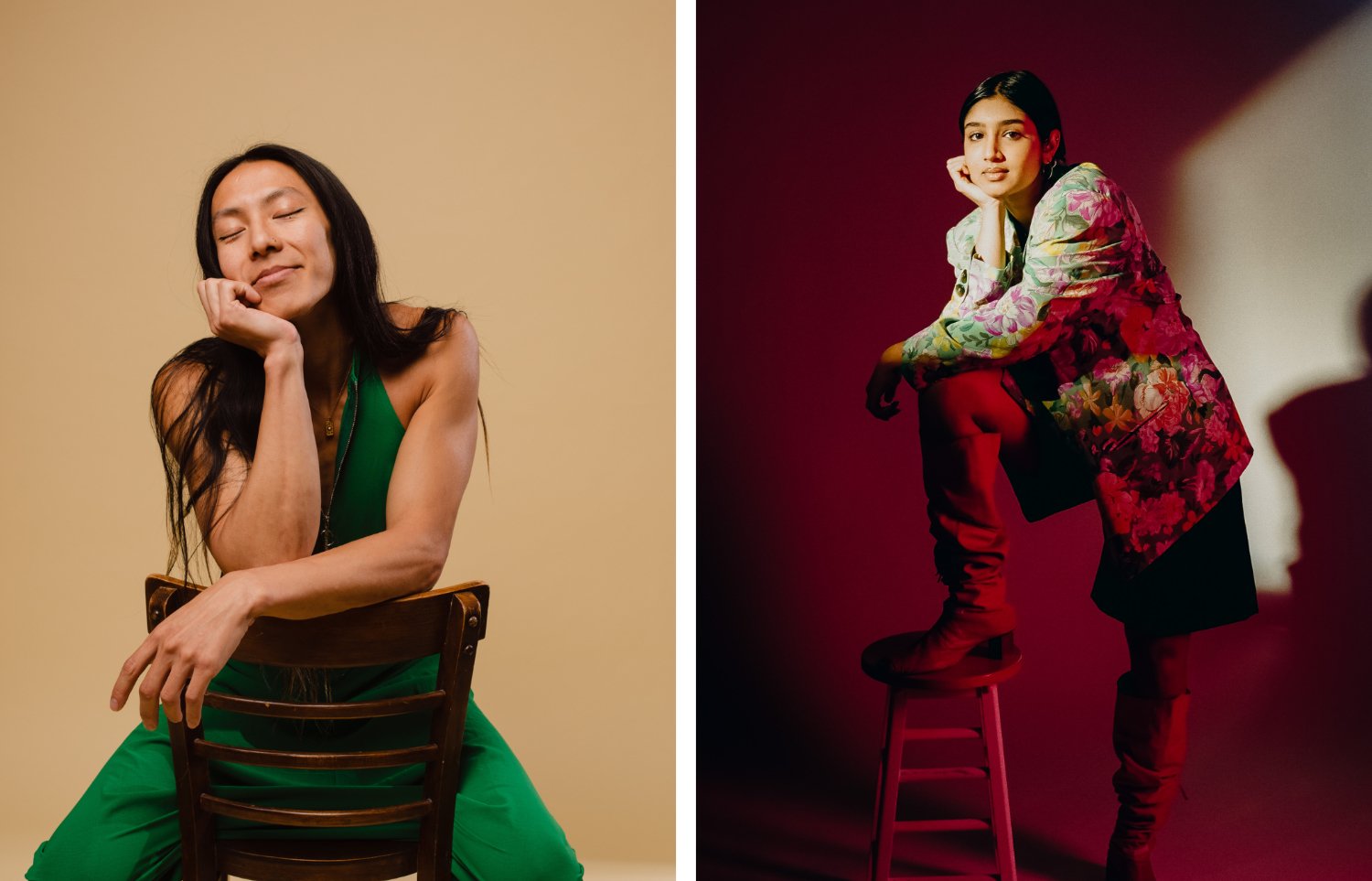Behind the Lens: An Interview with Photographer and Videographer Cameron Falco
Photo Credit: Cameron Falco
Cameron Falco, a photographer, director and video editor, is the embodiment of passion and innovation within the world of visual arts. As a New York-based artist, their work spans across portrait photography, branded content, and music videos, showcasing a unique ability to capture and narrate diverse stories through the lens. With a BFA in Photography and Video from the School of Visual Arts, Cameron has collaborated with notable names including Both& Apparel and NPR’s Tiny Desk Meets SXSW, creating authentic, inclusive, and dynamic content. Known for their gender-affirming portraiture and compelling content for music artists, Cameron's professional journey is a testament to their dedication to crafting engaging visual narratives.
During the interview, Cameron shared their story of becoming a photographer, tracing the journey from a high school hobby to studying photography and video in New York City, and finally embracing it as their full-time career. Cameron also talked about building connections in the industry, advocating for collaboration over competition, and how embracing their trans identity has shaped their work, guiding them towards partnerships with gender-queer and trans brands. Let’s jump right in!
1. Can you walk us through your professional journey and how you got to where you are today?
I became obsessed with photography as a teenager when I first used an iPod Touch, right when they released their first model with a camera. From that moment on, I was determined to build a career in photography. In high school, it served as a creative outlet and an escape from my hometown, which felt really small and conservative. Luckily, I lived on Long Island so I was able to hop on a train to New York City where I would immerse myself in photography. During these trips, I realized the city had a huge queer community and decided there is where I needed to live! I ended up studying Photography and Video at the School of Visual Arts and that’s where I became more comfortable with who I was and started thinking more about my identity.
Throughout college, I started building my network by sliding into DM's on Instagram, cold emailing and offering my services, or going to industry events and speaking to as many people as possible – all of which I still do today. I eventually met some great colleagues who began referring me to more and more gigs, made some best friends, and found community along the way! For my thesis, I directed and produced an experimental short film, which expanded my video production skills. After graduating at the onset of the COVID-19 Pandemic, I secured a full-time position at a video agency and continued to build my client base. By 2021, I took the leap to leave my full-time job and opened up shop as a full-time freelancer.
“Now, as I embrace my trans identity more fully, I'm focused on collaborating with gender-queer and trans brands – and queer brands at large! Creating content for our community means the world to me.”
I’m also working towards launching a personal series and I would love to shoot magazine editorials focused on trans folks, and explore the varying forms of masculinity and how different that can look for each person.
Photo Credit: Cameron Falco
2. What inspired you to offer the services you provide?
I think, at its core, photography and film are both things that allow me to connect with people. It allows me to communicate with a vulnerability that I'm not used to expressing with words. I've learned from leaning into my identity and immersing myself in the LGBTQ+ community that representation is so important. Right now, it's important for me to tell the stories of the people around me, of the queer people that I was searching for as a kid, and of the people making a difference in the world.
3. What is one of your biggest challenges in your professional journey, and how did you overcome this?
One challenging part of being a service provider running their own business is that you must do a lot of work alone. There's so much learning to do, mistakes to be made, and successes to be had, and when you're not receiving feedback from peers, it's easy to spiral and feel some imposter syndrome quickly.
“I've learned that community is invaluable and reaching out to colleagues for help is a game changer. In an industry with a lot of folks competing for work, the best thing you can do is invest in your colleagues, share resources, and grow together.”
To build a sense of community, I've started reaching out to photographers whose work and career I admire. There was one photographer who always made me think, “Oh my God, they're doing exactly what I want to do!” So I reached out to them and asked if they would be interested in grabbing coffee. We ended up having a really cool conversation about being queer, working as photographers, and have even collaborated on a few projects!
Photo Credit: Cameron Falco
4. If you could give one piece of advice to future LGBTQ+ service providers within your field, what would it be?
Visibility is a complicated but essential thing. You can make a difference by simply existing as your authentic self. However, while visibility is incredibly important, it can also be scary and risky, especially for those of us in the LGBTQ+ community. With my recent experience changing my name and being someone who is not cis, there is a sense of danger and uncertainty—not knowing how the outside world will react and not knowing if you'll lose gigs or connections within the professional sphere. However, I also recognize my privilege as a white person and understand these risks are even more significant for LGBTQ+ people of color.
“So, if you want to be more visible and feel safe doing so, it can be powerful. Visibility can give other LGBTQ+ folks the opportunity to feel seen and encourage them to live more openly and authentically. It can also help change perspectives and open minds.”
5. How does being openly queer and trans inspire or impact your business?
In situations where the client or person I'm photographing is also queer, it allows me to connect with them on that level and create a space where they can feel safe and affirmed. When I'm the only queer or trans person on set, it allows me to provide a fresh perspective on the project and contribute to the culture of the group of people working together. Even just on a human level being queer has given me the perspective that we all can benefit when we remove assumptions about a person based on their appearance, job title, or how they identify.
Photo Credit: Cameron Falco
6. What brands or services by LGBTQ+ founders are your go-to's and why?
Two of my favorites are Both& Apparel and Automic Gold. I try to wear Both& every day when possible because their clothing is specifically designed to fit transmasculine and nonbinary folks in a way that binary fashion does not, eliminating a lot of factors that can cause dysphoria. I also love Automic Gold. I've been wearing their earrings for years, and their quality is unmatched. I really like accessories that are minimal and classic.
7. Who is your favorite LGBTQ+ celebrity, and why?
There's no possible way to pick just one. This community is so amazing! But the work of Alok V Menon, all three members of MUNA, and Chella Man all really inspire me.
8. Share one fun or unusual fact about yourself.
One of my good friends recently got me into the WNBA, and now I'm a huge Liberty Fan.





